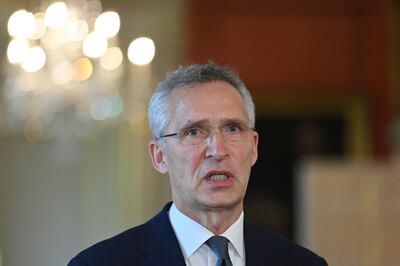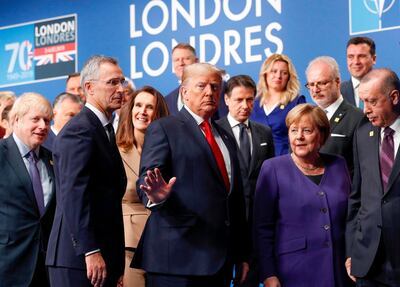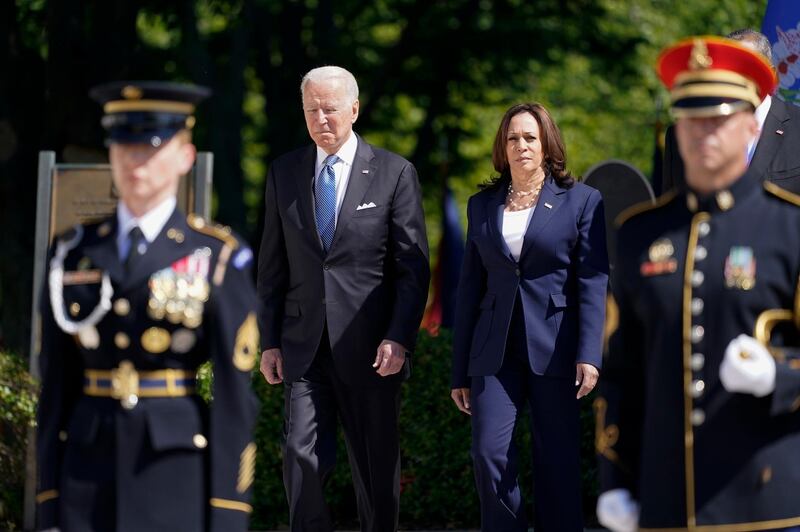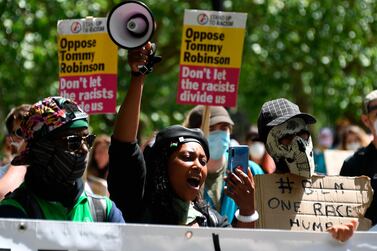Stand by for a barrage of claims that the Nato summit on June 14 sets down a marker for a new and more effective alliance.
The always important imagery will certainly be better than the last two summits. US President Joe Biden will unite the meeting as a change for good from his predecessor Donald Trump. Mr Biden's warm personal exchanges will stand in contradistinction from Mr Trump's shoulder barging of one of his peers at the family photo in 2017.
Nato Secretary General Jens Stoltenberg has given a series of briefings ahead of the gathering. The communique is set to address a wider set of challenges than ever before, including the rise of China. It will launch work on a new strategic concept that will replace the discredited document of 2010. A line has been drawn in the sand with the withdrawal from Afghanistan by the 20th anniversary of 9/11 attacks on the US. And finally a new military domain of cyber has been integrated into Nato structures.
Mr Biden will travel from the Brussels meeting to Geneva for a summit with Russian President Vladimir Putin. With 29 nations behind him, the US president enters the room with an invaluable solidarity that should open up a more amenable attitude from Mr Putin. Put on the spot on what it is that Nato offers, Mr Stoltenberg says the US is not always number one on its own. With Nato, it has an expanded source of influence.
Thus Nato is an indispensable forum for all aspects of north Atlantic security, an interpretation that stretches beyond its borders to the Syrian conflict, Iran’s missile threats and freedom of navigation from the Strait of Hormuz to the South China Sea, according to Mr Stoltenberg’s comments.
The danger is that, the broader the canvas, the more difficult it is to see where the hard choices necessary in security have been made.
In a new book titled Hard Choices, Peter Ricketts, the UK's former national security adviser, examines Nato's rise and recent struggles, from the perspective of an insider. Mr Ricketts illustrates how the UK's post-Second World War leaders were adept at recognising America's openness for an international alliance and tying this to an agenda of rebuilding Europe's defence capability.
The new body combined a commitment to collective defence, though as he points out that the famed Article 5 is far more nuanced than widely perceived, with an effectiveness in achieving political goals in areas such as arms control. He cites the example of the now forgotten Mutual and Balanced Force Reduction negotiations in Vienna in the 1970s. These were useful to then US president Richard Nixon, who wanted to head off then US senator Mike Mansfield’s efforts to introduce cuts in US troop numbers unilaterally. In return, the Soviet Union got the Europe-wide security talks it had craved for more than a decade.

As the talks dragged on, Nato's most effective tool was to organise a weekly dinner and an evening of folk songs involving its ambassadors and those of the Warsaw Pact. It can truly be said that Swanee River and other show-stoppers helped keep the peace at the height of the Cold War.
Mr Stoltenberg's job is to continue to prove that Nato is useful. The headquarters itself can often seem to be spending as much time averting internal rifts as addressing the outside challenges. He can cite instances such as the deconfliction mechanisms that helped Turkey and Greece to cope with the eastern Mediterranean tensions so far. The recent deal that saw Turkey agree to take on the security of Kabul airport after the Nato withdrawal is an under-appreciated diplomatic gain for the alliance, as it seeks a smooth pathway out of the Central Asian theatre.
It is also important for Nato to show that it is alive to emerging threats. During a visit last week to the British aircraft carrier, The Queen Elizabeth, Mr Stoltenberg reviewed the Steadfast Defender exercise, which included wargaming hacking attacks on the carrier group as it performed its mission.
What Nato should offer to policymakers in Mr Ricketts's view is an avenue to exercise real influence on the structures of international relations without the transfer of sovereignty. At its best, it offers members the ability to maintain and develop their individual and collective capacities to resist armed attack, across a series of domains.

The tendency towards splits is not going away. After internal divisions undermined the last review of the alliance’s Strategic Concept, all eyes will be on next week’s summit communique on how the next framework will be thrashed out in 2022.
French President Emmanuel Macron has already made clear his doubts, damning the alliance as "brain dead". The challenge of getting the Europeans to take more of their own defence burden is the number one concern in Paris. That is closer to the optics of the Trump era than anything Mr Biden needs.
With European strategic autonomy prioritised by one camp, the prospect of a relaunch of Nato as a universal alliance is doomed. While Mr Stoltenberg promises that the summit will have something to say on China, it does not see Beijing as an adversary. Florence Parly, Minister of the French Armed Forces, has warned that Nato cannot be automatically involved in a US-China confrontation.
As Mr Ricketts observes, the “changing geometry of power” in the world into competing blocks creates perilous pressures for the rest. Just as for Britain and France as countries, there are big risks for Nato in not making the right decisions as it defines its future.
Damien McElroy is the London bureau chief at The National






